
Helen Thompson is a freelance producer and former associate digital editor at Science News. She makes videos, builds interactives, wrangles cats and occasionally writes about things like dandelion flight and whale evolution. She has undergraduate degrees in biology and English from Trinity University in San Antonio, Texas, a master’s degree in science writing from Johns Hopkins University in Baltimore, Maryland, and strong opinions about tacos. Before Science News, she wrote for Smithsonian, NPR.org, National Geographic, Nature and others.

All Stories by Helen Thompson
-
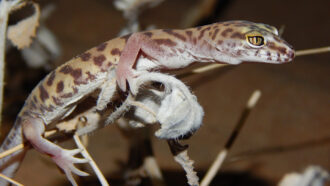 Animals
AnimalsWatch how a western banded gecko takes down a scorpion
New high-speed video reveals how normally mild-mannered geckos can violently shake venomous prey into submission.
-
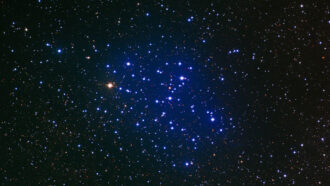 Space
SpaceExplainer: Calculating a star’s age
Scientists can figure out a star's mass or composition pretty easily. Determining how old that star is, however, is a lot harder.
-
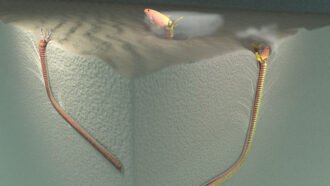 Animals
AnimalsGiant worms may have hidden beneath the ancient seafloor to ambush prey
Twenty-million-year-old tunnels unearthed in Taiwan may have been home to creatures similar to today’s monstrous bobbit worms.
-
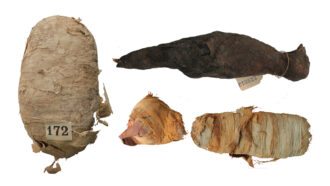 Archaeology
ArchaeologySee what these animal mummies are keeping under wraps
A new method of 3-D scanning mummified animals reveals life and death details of a snake, a bird and a cat that lived in ancient Egypt.
-
 Health & Medicine
Health & MedicineBy the numbers: How infectious measles and other diseases spread
A number called R0 measures how contagious an infectious disease is. It helps explain why measles is so dangerous.
-
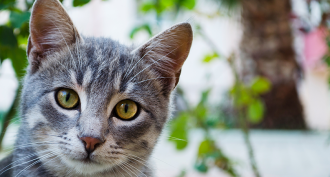 Animals
AnimalsYes, cats know their own names
Cats can tell their names apart from other spoken words. A new study supports what cat owners the world over had suspected.
-
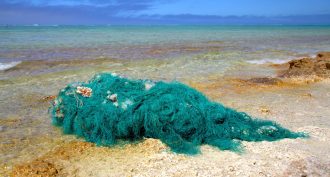 Environment
EnvironmentPacific garbage patch may be 16 times bigger than thought
The giant ‘garbage patch’ that floats between Hawaii and California weighs at least 79,000 tons, a new estimate suggests.
-
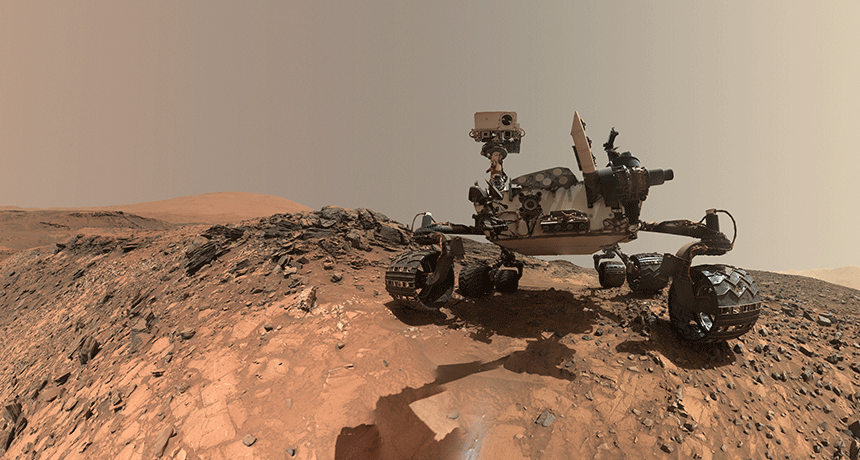 Planets
PlanetsWhat the Curiosity rover has learned about Mars so far
Scientists take stock of what the Curiosity rover has learned after five years on Mars — and what else it may turn up in the next year or so.
-
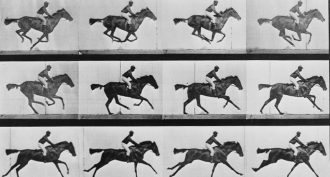 Genetics
GeneticsScientists hide a real movie within a germ’s DNA
A gene-editing technology called CRISPR helped scientists encode a short movie in the DNA of E. coli bacteria.
-
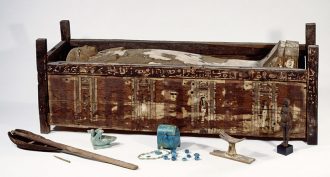 Archaeology
ArchaeologyDNA from African mummies tie these folk to Middle Easterners
Ancient DNA extracted from 90 Egyptian mummies reveals genetic links to Greece and the Middle East.
-
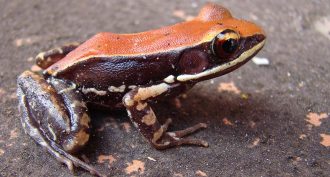 Health & Medicine
Health & MedicineFlu fighter found in frog slime
A protein found in the mucus secretions of an Indian frog can take down a type of flu virus, a new study finds.
-
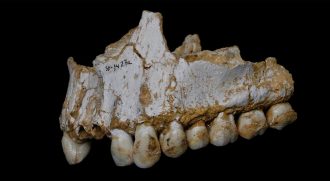 Science & Society
Science & SocietyFossils point to Neandertal diets — and medicine use
Whether Neandertals were largely meat-eaters or vegans depended on their environment, fossils now suggest. Their teeth also indicate they used natural medicines.